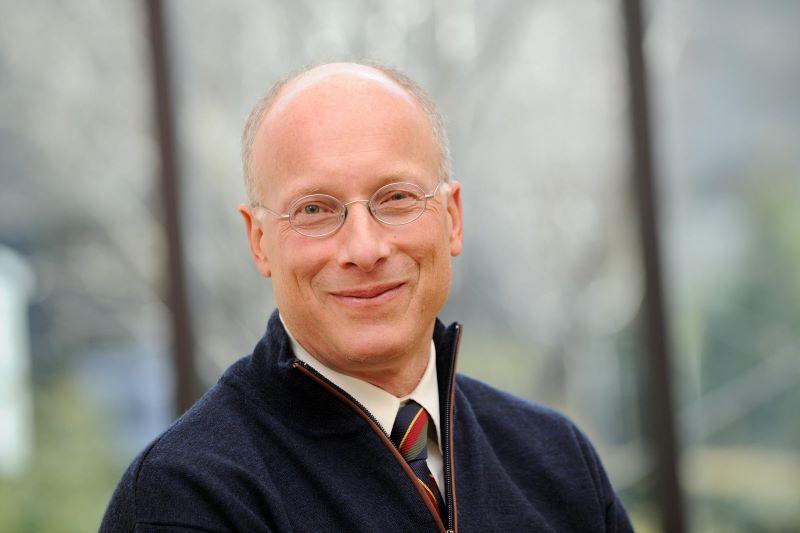-

Hear from Monica Toft, Academic Dean
Learn how Monica Toft, Academic Dean, is shaping the study of global affairs and diplomacy at Fletcher.
Hear from Prof. Toft -

Explore Fletcher academics in action
Fletcher Features offers insights, innovation, stories and expertise by scholars.
Get global insights -
Get application tips right from the source
Learn tips, tricks, and behind-the-scenes insights on applying to Fletcher from our admissions counselors.
Hear from Admissions -

Research that the world is talking about
Stay up to date on the latest research, innovation, and thought leadership from our newsroom.
Stay informed -
Meet Fletcherites and their stories
Get to know our vibrant community through news stories highlighting faculty, students, and alumni.
Meet Fletcherites -

Forge your future after Fletcher
Watch to see how Fletcher prepares global thinkers for success across industries.
See the impact -

Global insights and expertise, on demand.
Need a global affairs expert for a timely and insightful take? Fletcher faculty are available for media inquiries.
Get in Touch
A Personal Reflection on Jewish American Heritage Month
Professor Joel Trachtman shares thoughts on history, family, and heritage

Celebrated every May, Jewish American Heritage Month honors the history and culture of Jewish Americans and recognizes their innumerable contributions to the country’s history. The Fletcher School asked members of our community to reflect upon what the month means to them. Hear from Professor Joel Trachtman on his family’s history and the rise of anti-Jewish incidents in the United States.
Most United States Jews are descendants of Germans or, more often, Eastern Europeans whose ancestors lived in the Jewish Pale of Settlement, which was a restrictive and oppressive Jewish ghetto of the Russian Empire established in 1791, and lasting until the Russian revolution. Jews were not permitted to live elsewhere. My own grandparents, on both sides, were poor immigrants to the U.S. in the early 20th century from the Jewish Pale of Settlement—from an area within the Pale that is now Ukraine. Most German and Eastern European Jews who did not leave early enough were murdered in the Holocaust. In this sense, U.S. Jews are largely descendants of Holocaust survivors, and the staggering murder of six million of our co-religionists is the defining heritage of U.S. Jews.
In my work, I have a number of opportunities to travel. When I am in a new city, I try to find time to visit a synagogue, or a Jewish museum. A few of the recent places where I have done so include Rome, Florence, Basel, Moscow, St. Petersburg, Istanbul, and Bridgetown. I was in Bridgetown for a conference in early May and visited the Synagogue Nidhe Israel—“Synagogue of the Scattered of Israel.” Built in the 17th century, it was founded by Jews fleeing the Spanish Inquisition that spread to Brazil. Very few Jews are now resident in Barbados, but the synagogue has been restored for the purpose of remembrance. In the cities I listed above, Jewish heritage is unfortunately often just a remembrance of vibrant communities, in Rome and Florence in ghettoes, of the past.
Based on this international heritage, it is with foreboding and alarm that I observe the recent sharp rise in anti-Jewish incidents in the U.S. Jews are the most frequent victims of religion-based violence in the U.S. Much of this hate and violence comes from the right—from modern fascism.
An increasing portion of the hate also comes from the left, occasioned in part by anti-Israeli sentiment. Israel must be understood in the light of the persistent global heritage of exclusion, mistreatment, and murder of Jews in other countries. While the State of Israel engages in misconduct against Palestinians, when I observe the criticism of Israel, and the BDS (boycott, divest, sanction) movement against Israel, it strikes me that Israel is singled out for special criticism, despite the substantial rights it accords Palestinians within Israel and the extraordinary care its security forces use to avoid civilian harm in Gaza and the West Bank. There is no BDS movement against Russia, China, Iran, Sudan, Syria, etc. This focus on Israel’s misconduct, alongside silence in the face of much worse action elsewhere, seems likely to be a result of anti-Jewish bias.
My grandparents came to the U.S. with practically no money or education. One grandfather was a peddler, and the other was a house painter. The U.S. was, for them, a land of marvelous opportunity, and their children, despite poverty and exclusion by antisemitism from certain universities and opportunities, persisted to achieve solid middle-class lives. This is a common Jewish story in the U.S. However, because of the economic and social success of Jews in the U.S., many people do not see us as a vulnerable minority. This is a dangerous mistake.
Joel P. Trachtman is Professor of International Law and Henry Braker Professor of Commercial Law at The Fletcher School. The author of ten books and over a hundred scholarly articles and chapters on international economic law, Professor Trachtman has served as a member of the Boards of the American Journal of International Law, the European Journal of International Law, and the Journal of International Economic Law, has consulted for governments and organizations, including the United Nations, the World Bank, and the OECD, and has been a visiting professor at Basel, Hamburg, Harvard, Hebrew, Hong Kong, MGIMO, Swansea, and Pretoria universities. He is a leader of the “Remaking Trade Project,” which in 2021-2024, through a series of 10 workshops and 50 white papers, is intended to map an agenda and develop tools for harnessing the international trade system to sustainable development. He is also a frequent media commentator on trade law issues. He practiced law in New York and Hong Kong for nine years before entering academia.

